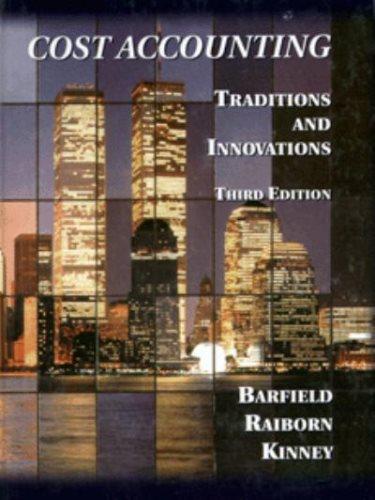Starbucks Coffee Co. has adopted broad guidelines aimed at improving working conditions at its foreign coffee suppliers.
Question:
Starbucks Coffee Co. has adopted broad guidelines aimed at improving working conditions at its foreign coffee suppliers. The guidelines are believed to be the first ever by a big U.S. importer involving an agricultural community.
Starbucks's guidelines call for the Seattle company's overseas suppliers to pay wages and benefits that at least address the basic needs of workers and their families." For example, the company wants suppliers to only allow child labor when it doesn't “interfere with mandated education." It also wants suppliers to help workers gain “access to safe housing, clean water and health facilities and services." In addition, the guidelines endorse the rights of workers to free association and to “work because they want or need to, but not because they are forced to do so."
Global human-rights activists applauded the guidelines. “77;is is going to be a benchmark for a lot of importers of agricultural commodities, ” says Robert Dunn, president of Business for Social Responsibility, a trade group.
Starbucks, however, doesn V plan to punish any suppliers that violate the code.
[SOURCE: G. Pascal Zachary, “Starbucks Asks Foreign Suppliers to Improve Working Conditions,” Wall Street Journal (October 23, 1995), p. B4. Reprinted by permission of The Wall Street Journal, © 1995 Dow Jones & Company, Inc. All Rights Reserved Worldwide.]
a. Assuming the suppliers abide by Starbucks’s code, what short-run and long- run effects might be created relative to Starbucks’s products? (Consider both positive and negative effects.)
b. If you were managing a supplier operation for Starbucks in a low-wage coun¬ try (for example, Guatemala), would you be inclined to abide by the policy? Why or why not?
c. Levi Strauss, Reebok, and Nike have recently endorsed codes that threaten to stop doing business with suppliers that allow substandard working con¬ ditions. As a customer of these companies, would you necessarily be in favor of such a policy? Why or why not?LO2
Step by Step Answer:

Cost Accounting Traditions And Innovations
ISBN: 9780538880473
3rd Edition
Authors: Jesse T. Barfield, Cecily A. Raiborn, Michael R. Kinney





